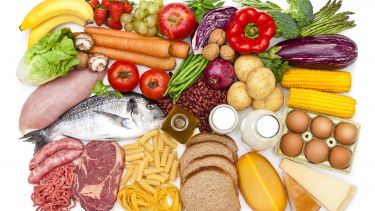More than half of older people in South Yorkshire don‚Äôt consume enough protein to stay healthy, according to a new study from the University of ∫˘¬´”∞“µ‚Äôs Healthy Lifespan Institute.
The study, published today in , assessed the diets of 256 older adults aged between 65 and 89 years old in the South Yorkshire area.
The researchers assessed two existing datasets that had extensive and valuable information about the dietary intake of older adults in the region.
They found less than 50 per cent of participants met current UK recommendations of consuming 0.75 grams of protein per kilogram of their body weight per day (around 53 grams for a man and 46 grams for a woman). However many experts believe that older adults need higher protein intake than the UK recommendations, with international organisations suggesting 1.2 grams of protein per kilogram of their body weight per day. Less than 15 percent of the study group met this age-specific recommendation.
It has also been shown that older adults need to consume 25-30 grams of protein at each of their three daily meals to stimulate muscle protein synthesis. Only one participant in the study was achieving this, with other participants eating lower levels of protein-rich foods in the morning in particular.
We know protein consumption, especially when combined with exercise, helps to slow down the loss of muscle mass and strength that comes with ageing.
Inadequate protein intake contributes to muscle wastage, impacting physical function and increasing the risk of frailty and mortality through falls. This risk is again increased in older adults with obesity, who may be unable to exercise or move freely, as their weight may mask the problem.
The study found that meat, fish and dairy contributed to 86 per cent of protein intake for the participants. The researchers suggest that the participants could benefit from increasing their daily protein, especially in the morning when consumption was low.
Dr Bernard Corfe
Senior Lecturer in Oncology and Principal Investigator in Molecular Gastroenterology
Frailty and related musculoskeletal problems cost the UK an estimated £7 billion per year, so never has the maintenance of healthy lean body mass been so important for a healthy active life as we age.
We know the national guidelines do not necessarily reflect the increased requirements older adults have to maintain their muscle mass, so a useful strategy for people of mid to older age is to include a source of protein with every meal.
As an indicator, you can get 32 grams of protein from a chicken breast and 6 grams from an egg. Older adults can easily bolster their protein intake by eating a high-protein breakfast cereal or an egg and slice of brown toast for breakfast. People should also think about including sustainable and plant-based sources of protein in their diet such as beans, lentils, tofu and peas.
Dr Elizabeth Williams
Senior Lecturer in Human Nutrition
∫˘¬´”∞“µ‚Äôs Healthy Lifespan Institute aims to help everyone live healthier, independent lives for longer, and following on from this study the researchers are now building a proposal on how protein could be used to reduce muscle wasting during cancer treatment.
Dr Corfe added: “We already know protein consumption improves our resilience to infections and treatments for diseases of ageing like cancer.
“Treatments such as chemotherapy can worsen rates of muscle wastage, so we hope to further this research and see if we can identify if protein consumption can contribute to improved outcomes for those undergoing cancer treatments.”


